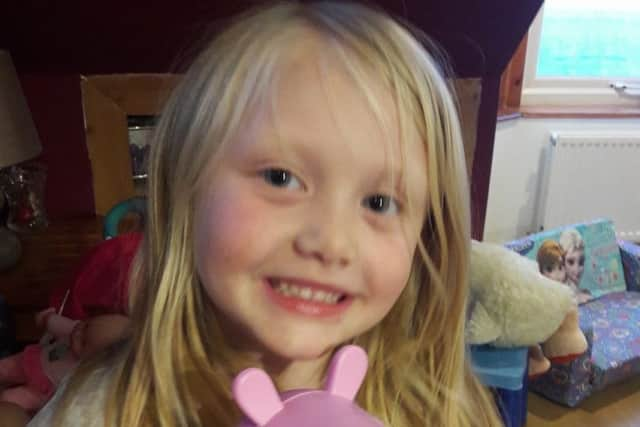Calls for children to be screened for ‘psychopathic traits’ in wake of Alesha MacPhail murder
Writing exclusively in The Scotsman, Dr John Marshall said that opportunities for early identification in children are being missed amid “politically correct” fears of labelling and stigma.
Dr Marshall was one of two psychologists who assessed Aaron Campbell, 16, who was sentenced to a minimum of 27 years behind bars for the abduction, rape and murder of Alesha on the Isle of Bute last July. Campbell had pleaded not guilty during the trial, but it was later revealed he confessed his crimes to a psychologist before sentencing.


Advertisement
Hide AdAdvertisement
Hide AdDr Marshall says psychopathic traits, including cruelty to other children and animals, start early in childhood and genetic factors that lead to certain behavioural problems are “rarely acknowledged”.
He says he felt duty bound to speak out, claiming colleagues have been sidelined for challenging the theory of Adverse Childhood Experiences (ACEs), which links early years trauma with criminality in later life.


Dr Marshall writes, “you don’t become a psychopath on your 16th birthday”, and says he is driven by a determination to see some good come from the tragedy for Alesha’s family in the form of raising awareness of early prevention.
Last month Judge Lord Matthews imposed a life sentence on Campbell for the “brutal” murder. He said the teenager’s crime had caused “revulsion and disbelief”.
Lord Matthews told Campbell he was a “cold, callous, calculating, remorseless and dangerous individual”.
The judge read out Campbell’s “cold blooded and horrific” account of his actions that night, including how he described seeing Alesha asleep in her room as “a moment of opportunity”.
Speaking in general terms, Dr Marshall described the psychopathic behaviour traits that can be found in children under the age of five.
He said: “You’re looking at severe behavioural problems early on and high levels of aggression.
Advertisement
Hide AdAdvertisement
Hide Ad“Not responding to any kind of parental boundaries, not learning, cruelty to other kids and animals – that’s a big feature. You’re talking about sadistic cruelty, violence towards their peers and not learning at all from consequences.” He added: “Being completely independent, doing their own thing, lying a lot. I mean, every kid lies, but they lie for no good reason.
“Lacking emotion, devoid of expression and devoid of concern for others. Even a three or four-year-old will say ‘oh mummy or daddy’ if you’ve fallen or stubbed your foot, but they’ve no interest in that.
“From a very early age you’ve got that lack of empathy and coldness.”
Dr Marshall said once psychopaths enter their teenage years, they are often attracted to substance abuse and gangs. However, they often do not last in a gang environment.
He said: “This group is so extreme they often get put out of gangs. They’re the kind of kids when someone is down and they’re beating them up they don’t stop, whereas other children will run away.
“A big proportion of it is genetic, but you can make it worse with bad parenting and you can make it better with good parenting.
“So you can tweak the edges of this – but you can’t get away from the science, which is saying there is a big genetic proportion and we don’t know enough about who goes on to function [in society] and who goes on to murder.”
The concept of ACEs is based on a US study carried out on 17,000 Californians between 1995-1997.
Advertisement
Hide AdAdvertisement
Hide AdThey were surveyed on their physical health and questioned about their childhoods. The study found as the number of ACEs rose, so did the incidence of depression, alcoholism and suicide attempts in later life. The central interpretation was that trauma endured during childhood was the main determinant for the wellbeing of adults.
A Scottish Government spokesperson said: “Since 2008 we have shifted our focus towards prevention and early intervention of offending by young people, helping lay the foundations for a whole system approach.
“This partnership approach has a shared ambition of what we want to do to prevent, divert, manage and change offending behaviour by children and young people.”
